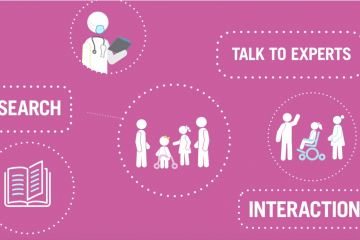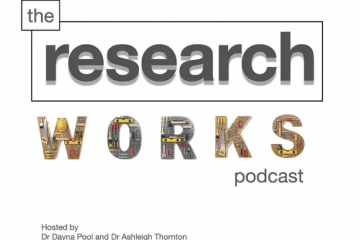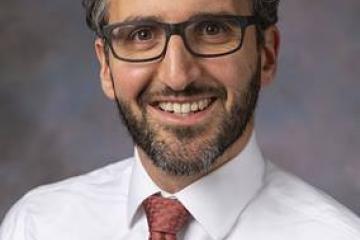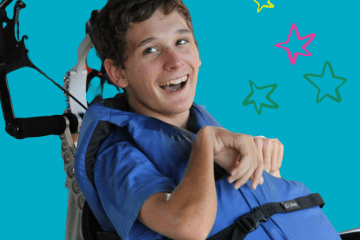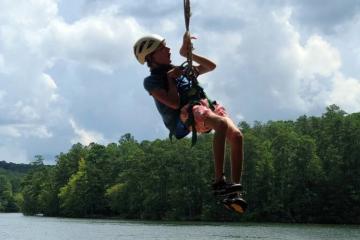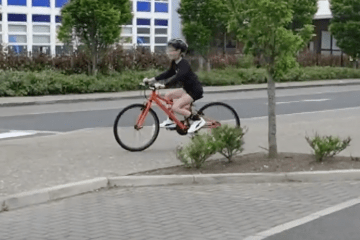New Horizons Virtual Town Hall 3- Shirley Ryan AbilityLab & Northwestern University in Chicago
Our 3rd Virtual Town Hall featured experts from the Shirley Ryan Ability Lab and Northwestern University in Chicago. This multi-disciplinary panel discussion highlights the latest updates in care of children with cerebral palsy.
Panelists
Deborah Gaebler-Spira, MD Professor of Physical Medicine and Rehabilitation and Pediatrics, Shirley Ryan AbilityLab
Deborah Gaebler-Spira completed a Pediatric residency at the University of Chicago and then pursued a residency in Physical Medicine and Rehabilitation residency at the Shirley Ryan AbilityLab (previously Rehabilitation Institute of Chicago). She is board certified in Pediatrics, Physical Medicine and Rehabilitation and Pediatric Rehabilitation Medicine. She has been affiliated with Northwestern Memorial Hospital, Children’s Memorial Hospital as a Professor of Physical Medicine and Rehabilitation and Pediatrics at the Shirley Ryan AbilityLab for 25 years. Her primary clinical work is with children with cerebral palsy and spasticity management.
Theresa Sukal Moulton, PT, DPT, PhD Assistant Professor at Northwestern University’s Feinberg School of Medicine
Theresa Sukal-Moulton, PT, DPT, PhD is an Assistant Professor at Northwestern University’s Feinberg School of Medicine. She educates Doctor of Physical Therapy students, especially in pediatric and neurologic content. Her research interests are in underlying neural mechanisms of movement challenges in cerebral palsy, early detection, and activity-based treatment to address these mechanisms. She is the Coordinator for the Cerebral Palsy Research Registry, a multi-institutional effort to support cerebral palsy research. She is an active member of AACPDM, serving as a past Research Committee Chair and currently a Director at Large.
Sudarshan Dayanidhi, PT, PhD Research Scientist at Shirley Ryan AbilityLab and an Assistant Professor at Northwestern University
Sudarshan Dayanidhi's research focuses on the role of muscle stem cell dysfunction in impaired musculoskeletal growth in children with cerebral palsy as well as muscle mitochondrial function in development and aging. This uses a combination of work in human studies and animal models and has been funded by the National Institutes of Health, American Academy for Cerebral Palsy and Developmental Medicine/Pedal-With-Pete Foundation and American Heart Association. Sudarshan has diverse training in Physical Therapy, Mechanical Engineering, Biokinesiology and postdoctoral training in Muscle Physiology.
Kara O’Malley, PT, DPT Physical Therapist at Shirley Ryan Ability Lab
Kara O’Malley completed her undergraduate education and doctorate of physical therapy at Saint Louis University. Early in her career she spent a year working at a medical clinic in rural Bolivia, assisting with health education and coordinating volunteers. For the last seven years she has worked as a pediatric physical therapist, primarily in the inpatient rehabilitation setting, with time spent at Shirley Ryan Ability Lab and Children’s Hospital of Los Angeles. She has also worked with pediatric patients in the Motion Analysis Center at Shirley Ryan Ability Lab.
Larke Johnson Chicago native
Larke is a 16 year old high school junior diagnosed with spastic diplegia cerebral palsy. Supported by her parents Armand and Angela, Larke had always complimented her therapeutic services with recreational activities. She participates in yoga, swimming, running, horseback riding (with her 8 year old brother Asa), and most notably ballet. She has performed in the Joffrey Ballet’s Nutcracker in a role created for a diverse dancer. She has also participated in research studies with the Shirley Ryan Ability Lab, Northwestern University, and Governor’s State University. After high school, Larke plans to further her artistic endeavors by studying dance in college. She hopes to help expand adaptive programs throughout the city.
"Instead of encouraging 10 to 15 minutes of stretching in the morning, I would encourage that you try and wear the braces that have been recommended to you for 10 or 12 hours, or that you think about when you're sleeping, what position are you sleeping in? Because that's another 10 hours of your day."


